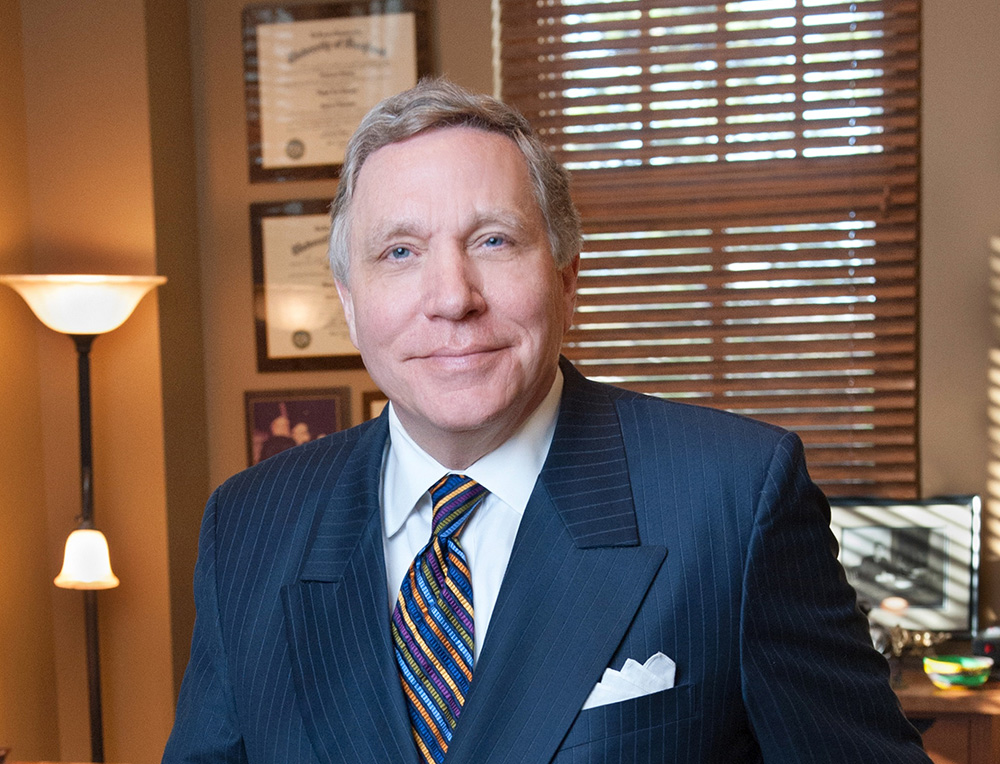By Dr. ROGER PARROTT

COVID-19 is the most straightforward example of why traditional planning is ineffective. Did your business plan include a global pandemic? Did anyone’s? Of course not! But we all dealt with it, rapidly made adjustments, and even found ways to improve our business, even though dramatic global changes were not included in the five-year plan of a single business leader.
When the virus hit, every long-range plan was tossed into the trash, and we became stronger leaders because we couldn’t depend on a predetermined plan. Instead this “opportunity of crisis” required us to provide courageous leadership through it. Most importantly, we became more dependent on our core mission rather than carefully crafted plans.
The jarring, speedy adjustments we made during COVID-19 were a forced push into what I’ve defined as Opportunity Leadership. It’s a model of leadership that, for me as a Christian, begins and ends with complete trust in God. It allows future destinations to be ordered by God’s hand and loosens our grip on the wheel of control. When we embrace it, we no longer need to manipulate our efforts and circumstances to engineer predetermined outcomes.
Opportunity Leadership is grounded in waiting in anticipation for opportunities that mesh seamlessly with our mission, gifting and capacity — propelling us to purposeful destinations. As a result, we can create an organizational culture that responds to new opportunities with expediency, adeptness and energy.
The metaphor of a powerboat versus a sailboat illuminates the difference between traditional long-range planning and Opportunity Leadership. As leaders, we have a fundamental choice to make. While the answer is easy, implementation is difficult:
- Would we rather try to achieve a set of ambitious goals by revving up the engines of our organizational powerboats to create the best programs, structures, benchmarks, and future that our thinking can imagine?
OR
- Would we rather find our destination in sailboats, prepared and equipped to catch the wind of God to go only wherever it might take us?
While the second choice is our desire, too often we plan, work and lead as if our direction is dependent on the power we can generate and the best course we can envision. We may feel proud when our powerboats are big, well built and polished, but a small, poorly crafted, worn-out sailboat will outdistance a powerboat every time. Only the sailboat can catch the wind of God.
In spring 2020, when your business assumptions and your long-range plan were scuttled, you began to innovate, move with speed, and adjust on the fly. You trusted God for the future more than ever, and saw opportunities and solutions develop that you never imagined.
As awful as the COVID-19 lockdown has been, it pushed us to a new level of speed and freed us from assumptions that restrained us. Retail stores and restaurants can serve customers while keeping their doors closed; churches don’t have to have in-person services to help people; classrooms can effectively meet virtually.
Uber and Airbnb were not technological breakthroughs. They were invented by those who looked beyond assumptions and considered providing the same service in new ways. They believed that some people would be willing to drive a stranger in their own car or let them stay in their house.
New opportunities are not missed because of a lack of capacity, strengths or skills. They are squandered because most organizations are too slow to make decisions and act. I am convinced most would rather live in mediocrity than grapple with a change that pushes them into uncertainty.
Opportunities are moving targets. You can’t freeze everything until you’ve got all your ducks in a row to make your best decision. If that’s your approach, by the time you’re ready, the opportunity will have passed, and your slow pace will have made the decision for you.
Some leaders shy away from opportunities demanding speed because we assume small and under-resourced organizations can’t do what more extensive name-brand operations tackle. We think we don’t possess whatever it takes to operate with speed.
I’d argue the opposite. Prominent entities have market presence and deep pockets, but smaller businesses are more agile and can move faster.
- “Small” does not mean “inferior.” We have a lean running team with fewer segmented experts and more collaborative generalists.
- “Underfunded” does not mean “incapable.” We have a bank account guided by careful choices instead of surpluses.
- “Unknown” does not mean “ineffective.” We have a deep level of service substituted for a high profile.
Convinced we’ll never have the resources or reach, we envy market leaders while cowering from the speed demanded to capture opportunities. But don’t focus on your neighbor’s opportunities – trust that God will bring opportunities designed for you.
If leading without a plan brought you through COVID-19, imagine how letting go of long-range planning could drive your innovation and service when we return to normal. Your future will be the story of an overwhelming challenge being transformed into an opportunity you never planned.
Dr. Roger Parrott is one of America’s most experienced university presidents, leading Belhaven University, one of only 36 schools in the world working at the highest level of collegiate arts programs. Belhaven was named in 2021 to “Best University to Work For” by the Chronicle of Higher Education, and Parrott was recognized as one of “The 10 Most Visionary Education Leaders of 2021” by Education Magazine.